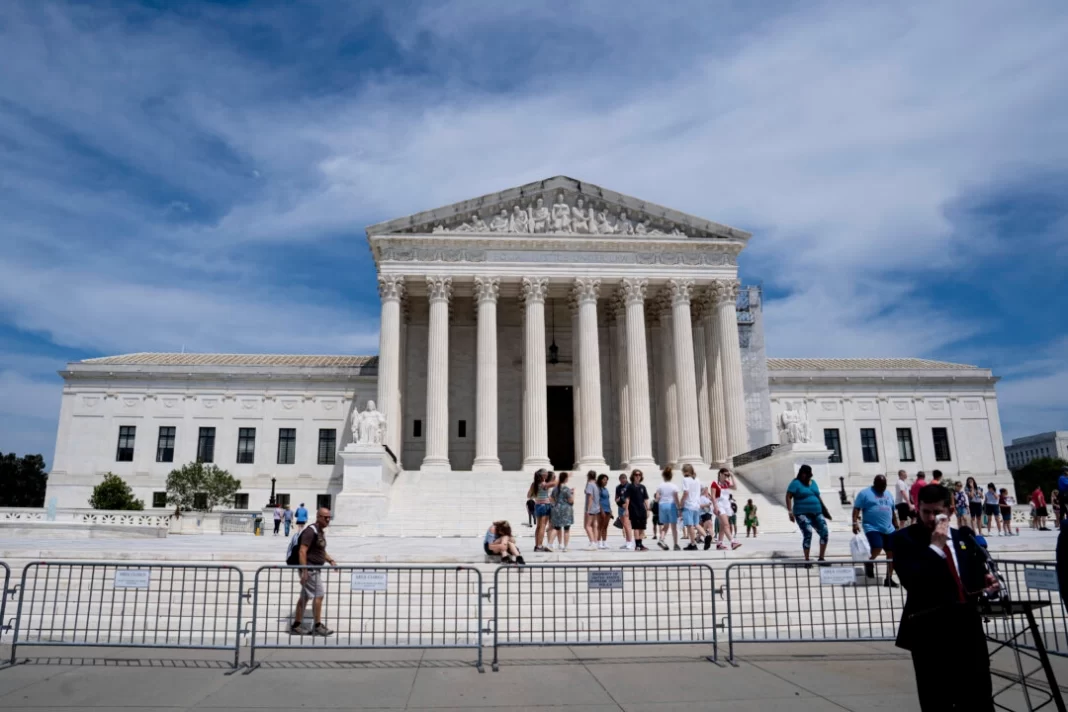“Truth will ultimately prevail where there is pains to bring it to light.” – George Washington
It’s official, a news publisher – doing his job – has been “railroaded” into admitting something others have done and not been charged with or prosecuted for. With his admission, several things will and several things won’t happen. Julian Assange gets released from incarceration or political asylum after 12 years, President Joe Biden gets to “sweep under the rug,” his terribly unpopular decisions about the case in this election year and routine journalistic conduct has been criminalized, insuring that future national security reporters and their media bosses may be reticent to speak about the lies the government either tells us or hides from us.
Co-founder of WikiLeaks, Julian Assange, has agreed to plead guilty to one count of violating the Espionage Act of 1917 for his role in receiving and publishing top-secret military and diplomatic documents from 2009 to 2011. The verdict will impact media freedoms globally and to the distinct disadvantage of those of us who rely on journalists and publishers like Assange to get us the truth.
That the Biden Department of Justice is finally bringing to a close this sad, tragic saga, it’s telling but not surprising that the Biden administration demanded a guilty plea for the crime of obtaining and publishing government secrets. The irony in the charge and subsequent disposition of the case is obvious, because this is the crucial task that investigative journalists who deal with national security issues perform on a regular basis.
When the government errs in the performance of its duty to us (to keep us free and protect what enables that), it doesn’t tolerate those who speak of it in public. And that’s especially true when the error is both egregious and embarrassing, as was the case with Assange.
Experts warn that the Assange plea deal could set a dangerous precedent. The International Federation of Journalists (IFJ) called his release a “significant victory for media freedom” with its general secretary, Anthony Bellanger, adding: “Had Assange gone to prison for the rest of his life, any reporter handed a classified document would fear facing a similar fate.”
But Seth Stern, director of advocacy for Freedom of the Press Foundation (FPF), said it was “alarming” the plea had been pursued. He said: “The plea deal won’t have the precedential effect of a court ruling, but it will still hang over the heads of national security reporters for years to come.” Stern continued, “The administration could’ve easily just dropped the case but chose to instead legitimize the criminalization of routine journalistic conduct and encourage future administrations to follow suit.”
Assange’s story is one of courage, perseverance and international politics.
His fame was touched off in 2010 after his firm, WikiLeaks, published a series of disclosures from US Army intelligence analyst Chelsea Manning. From then on the tale was one of cat-and-mouse politics. Ecuador came first to the rescue granting him asylum in August 2012, fearing he might be extradited from the UK to the US. The Ecuadorian Embassy in London became his home until April 2019, when he was (due to a change in Ecuador’s politics) forcibly removed and imprisoned in Belmarsh Prison until June 2024, while US extradition efforts worked their way through British courts.
One fact stands out and must not go unrecognized. Assange was essentially incarcerated for five years for actions that journalists engage in every day. One can readily see why the US government engaged in massive propaganda, manufacturing consent, by telling the American public what it wanted them to believe about the evils Assange allegedly engaged in. It was essentially a smear campaign run by the Justice Department, the White House, various members of Congress and (given what was at stake for the press) a surprisingly compliant media contingent which readily does the work of the government.
Assange was not the first to be so charged under the Espionage Act of 1917. The act has a long and convoluted history in the US regarding who would and would not be charged and then prosecuted for leaking secrets, receiving them and/or publishing them. Assange ran afoul of the act by receiving and publishing them. Others were indicted for their actions in leaking the secrets to the press.
Daniel Ellsberg, a former defense analyst who leaked the famous “Pentagon Papers” to the New York Times and other newspapers, faced charges under the Act, and went to trial in Los Angeles in 1973. The judge eventually dismissed charges against him and his colleague Anthony Russo. The newspapers involved in receiving the leaks (clearly a crime under the act) were not prosecuted.
In more recent years, former CIA analyst Edward Snowden was charged with violating the Epionage Act after he leaked classified documents related to the National Security Agency’s widespread surveillance program in 2013, beginning with The Guardian. Many news outlets published the information from the documents, including the New York Times, Washington Post and NBC News. Snowden sought asylum in Russia, but could be prosecuted under the charges if he returned to the United States. None of the media were ever charged with receiving and publishing the leaked data (both of which are prohibited under the act).
It would appear that a double standard in jurisprudence has been operating in America for some time. The media and publishers associated with the above cases were in violation of the Espionage Act (receiving and/or publishing leaked data) but none were ever charged – with the exception of Julian Assange and Wikileaks. But then he didn’t have the power and influence they did, either.
But are there other culpable actors involved in this and other cases? Could it not be argued that the US government failed in its responsibility to the people to secure our freedoms and protect our secrets? Ellsberg, Snowden and U.S. Army intelligence analyst Chelsea Manning (who leaked data to WikiLeaks) all had access to sensitive data. Should the government also assume some responsibility for the leaks because the system they had set up to protect secret information was insufficient to accomplish the task? Should the government also assume some degree of responsibility for the leaks because the system of vetting (who should and should not be trusted with sensitive information) apparently went awry?
The entire purpose of WikiLeaks is in the pursuit of at least some degree of justice by giving voice to the truth. People who engage in such obviously dangerous work attempt to achieve justice by letting the public know what they don’t know about what could potentially harm them. They enable the average citizen to have some idea of what those who have power over their lives are actually doing or trying to do and sometimes do to them (e.g surveillance, etc.).
So now, what will Julian Assange do with his new life and hard earned freedom? Will he continue with his crusade on behalf of the truth? Or will he take his leave from the dangerous world of truth-telling – perhaps spend some time with his family. He has not seen or been around them for five years of his or their lives.
Irrespective of how one understands Julian Assange and what he did, what happened to him in the end was not justice. For 14 years he withstood the awesome power of two countries (US, UK) working to punish him personally and send a fearsome message to those who might consider following in his efforts at truth-telling. It’s a dangerous affair that knows no end until those with power decide otherwise, and this only after one agrees to plead guilty to charges not brought against others in the same circumstance – receiving and publishing information about the government that is embarrassing to them.





